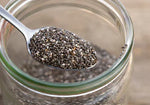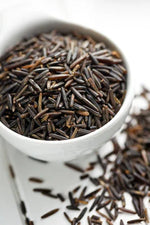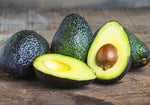
Adding Nuts to Your Diet - Why Nuts Are Good For Health
Share
For anyone trying to improve their diet or watch their weight, choosing healthy snacks can be quite a challenge. Additionally, when it comes to healthy snacking, there are a lot of factors one needs to consider. It is essential to check the nutrients contained in your food, down to the amount of fat, sodium, sugar, and calories. However, with all these things to consider, this leaves little to no options left for food. Luckily, you can turn to nuts as these include various health benefits. Keep reading to learn more about nuts and why they are good for your health.
Different Types of Nuts
Nuts come in all shapes and sizes, which makes them quite a complex food group. While some grow on trees, and others in the soil, nuts vary in all aspects. With that, each of these varies in health benefits as well. We’ll be looking into specifically three types of nuts: almonds, cashews, and pistachios.

Almonds
Almonds are an incredibly popular nut, known for their flavour and a formidable list of nutrients, all available for a fair price. These nuts can be eaten raw, roasted, or even as butter, flour, or milk.
Every ounce of almonds is found to account for 45% of one’s daily dose of Vitamin E. Because of its generous dose of Vitamin E, almonds help protect your cells against oxidative damage, as it serves as an antioxidant. Almonds also help support immune function and cellular communication.
Furthermore, almonds are also a good source of fibre, protein, healthy fat, and several vitamins and minerals. These help in reducing heart disease risk factors such as elevated LDL (bad) cholesterol and excess belly fat. Almonds also contribute to a healthy gut by supporting beneficial gut bacteria that include Bifidobacteria and Lactobacillus species.
Cashews
Cashews are known for their crunchy exterior and creamy interior, which makes them a perfect pair for any dish, may it be sweet or savoury. While they can be eaten raw, you can also opt to have them roasted, or ground into butter.
Pistachios
Derived from the Greek word pistákion which means “green nut,” pistachios have been consumed by humans ever since 6,000 B.C. These brightly coloured nuts are jam-packed with nutrients and are paired with lower calories and fat. Pistachios help improve metabolism and immune function.
Health Benefits of Eating Nuts
Now that we are familiar with the kinds of nuts, we must now look into their health benefits. With that, here is a list of health benefits from adding nuts to your daily diet:
-
Source of Nutrients
Nuts are very rich in various nutrients, but some contain a higher amount than others. For example, Brazil nuts provide 100% of the Reference Daily Intake needed for selenium. This applies to carbohydrates as well. Hazelnuts, for example, only provide 2 grams or less digestible carbs per serving. However, cashews provide almost 8 digestible carbs per serving. With that, nuts are generally an excellent food to mix in your diet if you're looking to eat healthier and lose some weight.
-
Antioxidants
Nuts are a great antioxidant. They include polyphenols that can combat oxidative stress by neutralizing free radicals. These are unstable molecules that contribute to cell damage and increase disease risk. Additionally, walnuts are a better way to fight free radicals than fish.
Furthermore, there is research that shows that the antioxidants in walnuts and almonds help protect the delicate fats in your cells from being damaged by oxidation.
-
Weight Loss
Despite its reputation for having a high-calorie count, research suggests that nuts can actually help you lose weight.
In a study on the Mediterranean diet, a cuisine commonly known for containing nuts, it was found that people were able to lose an average of 2 inches (5 cm) from their waists — significantly more than those given olive oil.
Along with this, almonds and pistachios have also consistently been able to promote weight loss rather than weight gain in controlled studies.
Furthermore, research shows that your body doesn’t absorb all of the calories found in nuts. This is because a portion of fat stays trapped within the nut’s fibrous wall during digestion. For instance, while packages may indicate 1 ounce or 28 grams of almonds offers 160–170 calories, your body only absorbs about 129.
-
Lower Cholesterol
It is also known that nuts can drastically lower one's cholesterol and triglyceride levels. This can be due to their high content of monounsaturated and polyunsaturated fatty acids. Specifically pistachios, for people who are obese and those with diabetes.
In fact, in one 12-week study on obese people, it was seen that pistachios help lower triglyceride levels to nearly 33% than in the control group.
Additionally, some nuts, like almonds and hazelnuts are also known to help increase HDL or "good" cholesterol while reducing LDL, otherwise known as "bad" cholesterol.
-
Combat Type 2 Diabetes and Metabolic Syndrome
Metabolic syndrome refers to a group of risk factors that are known to increase the chances of diseases like heart disease, stroke, and type 2 diabetes. Interestingly, nuts are known to be one of the best foods for people with metabolic syndrome and type 2 diabetes.
Nuts are not only low in carbs, but they also don’t raise blood sugar levels that much. With that, substituting nuts for food with higher carbs should lead to reduced blood sugar levels.
Furthermore, studies suggest that eating nuts may also lower oxidative stress, blood pressure, and other health markers in people with diabetes and metabolic syndrome.
Tips for Buying and Storing Nuts
Buying nuts
Buy nuts while they are still in their shells to help them last longer. In fact, most nuts should not be stored for more than one month as they go bad quickly.
With that, be sure to choose nuts that look fresh. Make sure to avoid those that are shrivelled, mouldy, bruised or give off an unpleasant smell. These are definite signs that your nuts have rotted.
Lastly, for versatility, make sure to buy nuts that are plain or unsalted to add great flavour without having to add sugar or sodium.
Storing nuts
An airtight container placed in a cool dry place, like the refrigerator is the best place to store your nuts. If you are storing it at room temperature, make sure to keep it away from direct heat or light.
Freezing nuts is also a viable option. Make sure to use an airtight container or heavy-duty freezer bag when doing so. If nuts develop a weird flavour, bad smell or grow mould, dispose of them immediately.
Kickstart Your Healthy Lifestyle By Adding Nuts To Your Diet!
Nuts are a convenient and nutritious way to add various nutrients to your body. It is also one of the easiest foods to introduce to yourself when starting out a healthier diet. Here at Foodsterr, we offer a wide range of nuts to not only broaden your list of healthy ingredients but to also help stock up your body with your daily needs. Shop our variety and kickstart your healthy lifestyle today with Foodsterr!




